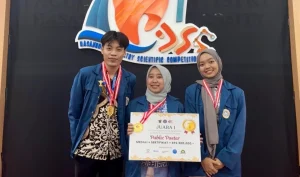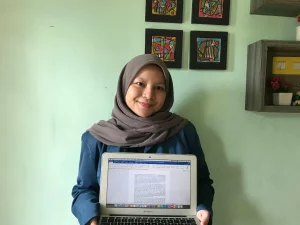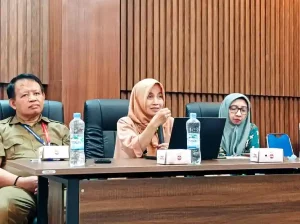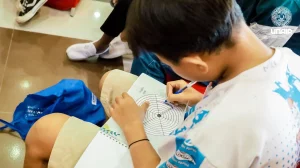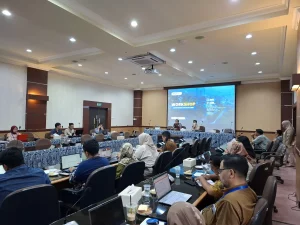UNAIR NEWS – One of the infectious diseases that often threaten the population, especially in the tropics and sub-tropics, is Dengue Hemorrhagic Fever (DHF). It is caused by the dengue virus, which is divided into four types or serotypes known as dengue serotype-1 (DEN-1), DEN-2, DEN-3, and DEN-4.
The four serotypes showed significant differences. These differences make it difficult for researchers to formulate what proteins can be used in humans to make them resistant to this dengue virus. Because, there is a protein that makes the body immune to DEN-1, but also becomes a receptor (which can strengthen the work of virus) DEN-2, DEN-3, or DEN-4. It means each DEN must be anticipated by specialized proteins that are different from those needed by other DEN. If the serotype in question is incompatible with the protein vaccinated to the patient, the condition of the person could worsen.
Professor of Faculty of Veterinary Medicine UNAIR, Prof. Fedik Abdul Rantam said, all researchers from various parts of the world continue to do research on this. The goal is to provide a solution so that one day a special treatment for dengue virus can be found.

In 2013, one of Prof. Fedik’s articles on efforts to deal with the dengue virus was published in a Scopus indexed journal. The article was titled “Analysis of recombinant, multivalent dengue virus containing envelope (E) proteins from serotypes-1, -3 and -4 and expressed in baculovirus”, and published by Trials in Vaccinology.
Prof. Fedik and the team delivered the results of a study of recombinant proteins which could be resistant to viruses DEN 1, 2, 3, and 4. The vaccinated proteins would form antibodies that could inhibit, capture, and neutralize all Dengue virus serotypes. So, the antibodies formed can recognize four serotypes.
“We have done research on apes and rabbits. The results were satisfactory on animals. So, it can continue to be developed and followed up,“ he said.
Prof. Fedik and team also conducted another study that was still related to the handling of the dengue virus. In 2018, the article he wrote was published in an international journal. The article was entitled “Neutralizing Potential of Fab IgG Hybrid Antibody Against Dengue Virus (DENV-1,2,3,4) Expressed on Mesenchymal Stem Cells” and published by Acta Vet Eurasia, Istanbul University Press.
Prof. Fedik and the team presented the results of research on antibodies for passive immunization of the body affected by Dengue virus. The article published in 2013 was about proteins to help the body form antibodies (active immunization), while the 2018 article presented which antibodies are suitable inserted in the body for prevention and therapy of Dengue virus. For this study, Prof. Fedik and the team conducted trials on rats and mice.
In general, both research for active immunization and passive immunization continue to be developed. There are no special priorities, because, in truth, the two studies have one common goal, maximizing the handling of Dengue virus attacks with a comprehensive perspective. This research topic has received attention from academics throughout the world. (*)
Author: Rio F. Rachman
Editor: Nuri Hermawan



